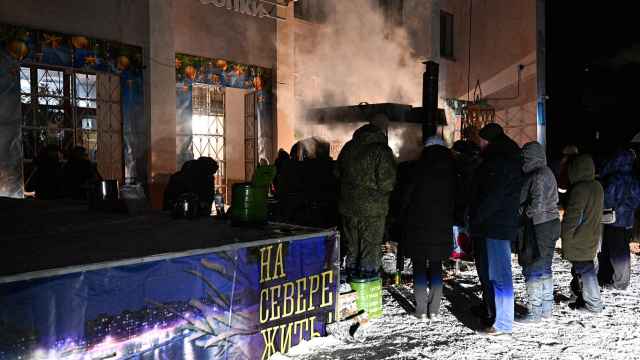On This Day 25 Years Ago: Russia's Kursk Submarine Disaster
On this day 25 years ago, Russia’s Kursk submarine sank following an explosion during naval exercises in the Barents Sea, killing all 118 personnel on board — a tragedy that became one of the biggest stains on President Vladimir Putin’s early rule.
The explosion that led to the sinking was traced to a leak of hydrogen peroxide that came into contact with a catalyst, causing the failure of a Type 65-76A torpedo in the forward torpedo room. This was followed by a second explosion, which split the submarine and caused it to rapidly sink. According to the Norwegian Seismic Array Service, seismic events were recorded by Norwegian, Canadian and American stations; the Norwegian service identified the activity as “explosions,” not earthquakes.
Evidence collected after the submarine was salvaged indicated that some of the sailors survived for up to eight hours following the explosion.
Putin, who was vacationing in Sochi at the time, refused aid offered by France, Germany, Italy, Norway, the U.S. and Britain. He did not accept international help until five days after the explosion. The Russian authorities further downplayed the incident and the Russian Navy's response was criticized as slow and inept.
The controversy deepened after lawyer Boris Kuznetsov, who represented many families of the sailors who died on the vessel, claimed that Putin, after meeting with the wives of the deceased, called Boris Berezovsky and referred to the women as “whores,” saying: “[The wives] were hired for $10 to discredit me!” Kuznetsov eventually wrote a book on the tragedy and fled Russia in 2007 to avoid persecution by the Russian authorities.
According to a declassified CIA report from December 2000, the Russian commission responsible for investigating the accident did not attribute blame to the U.S. or Britain. However, the report notes that the Russian public continued to believe strongly that the sinking was the result of a collision with a NATO vessel.
No individuals have been held criminally responsible by the Russian authorities for the tragedy.
The explosion that led to the sinking was traced to a leak of hydrogen peroxide that came into contact with a catalyst, causing the failure of a Type 65-76A torpedo in the forward torpedo room. This was followed by a second explosion, which split the submarine and caused it to rapidly sink. According to the Norwegian Seismic Array Service, seismic events were recorded by Norwegian, Canadian and American stations; the Norwegian service identified the activity as “explosions,” not earthquakes.
Evidence collected after the submarine was salvaged indicated that some of the sailors survived for up to eight hours following the explosion.
Putin, who was vacationing in Sochi at the time, refused aid offered by France, Germany, Italy, Norway, the U.S. and Britain. He did not accept international help until five days after the explosion. The Russian authorities further downplayed the incident and the Russian Navy's response was criticized as slow and inept.
The controversy deepened after lawyer Boris Kuznetsov, who represented many families of the sailors who died on the vessel, claimed that Putin, after meeting with the wives of the deceased, called Boris Berezovsky and referred to the women as “whores,” saying: “[The wives] were hired for $10 to discredit me!” Kuznetsov eventually wrote a book on the tragedy and fled Russia in 2007 to avoid persecution by the Russian authorities.
According to a declassified CIA report from December 2000, the Russian commission responsible for investigating the accident did not attribute blame to the U.S. or Britain. However, the report notes that the Russian public continued to believe strongly that the sinking was the result of a collision with a NATO vessel.
No individuals have been held criminally responsible by the Russian authorities for the tragedy.
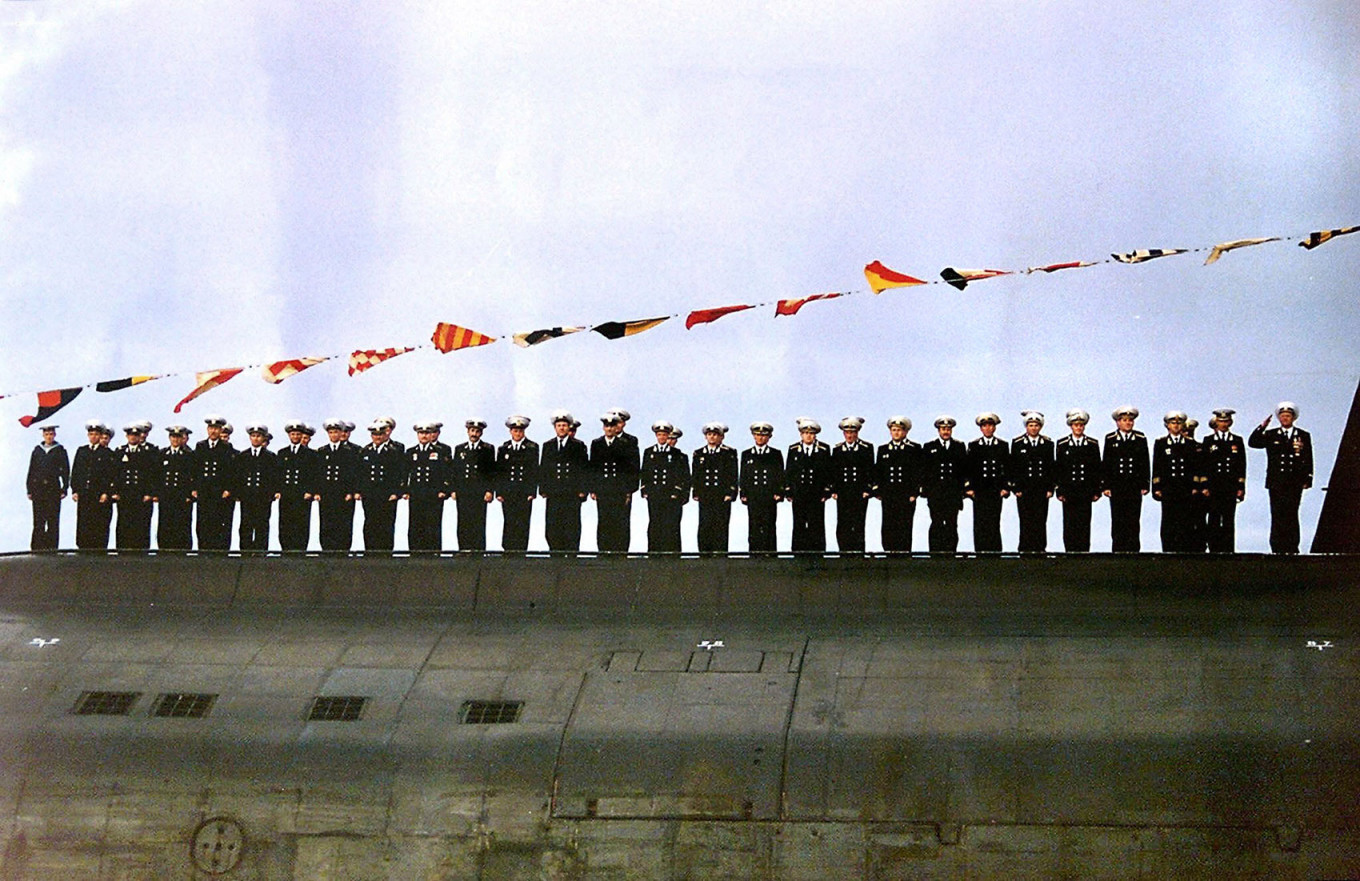
The crew of the doomed Kursk submarine participated in a naval parade in Severomorsk on July 30, 2000, in honor of the annual Navy Day holiday.
Stringer / AFP
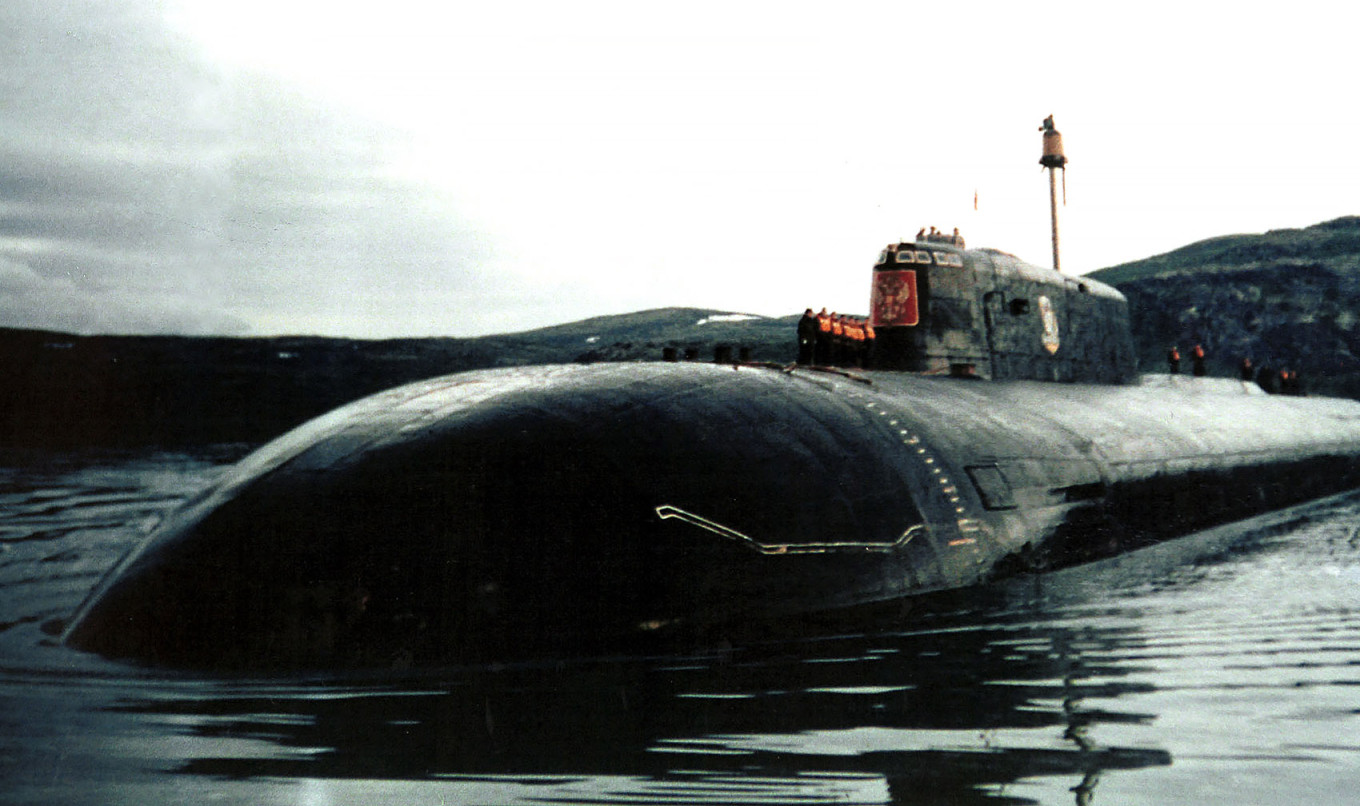
The Kursk nuclear-powered submarine docked at a berth in the Murmansk region in 1999.
Semyon Maisterman / TASS
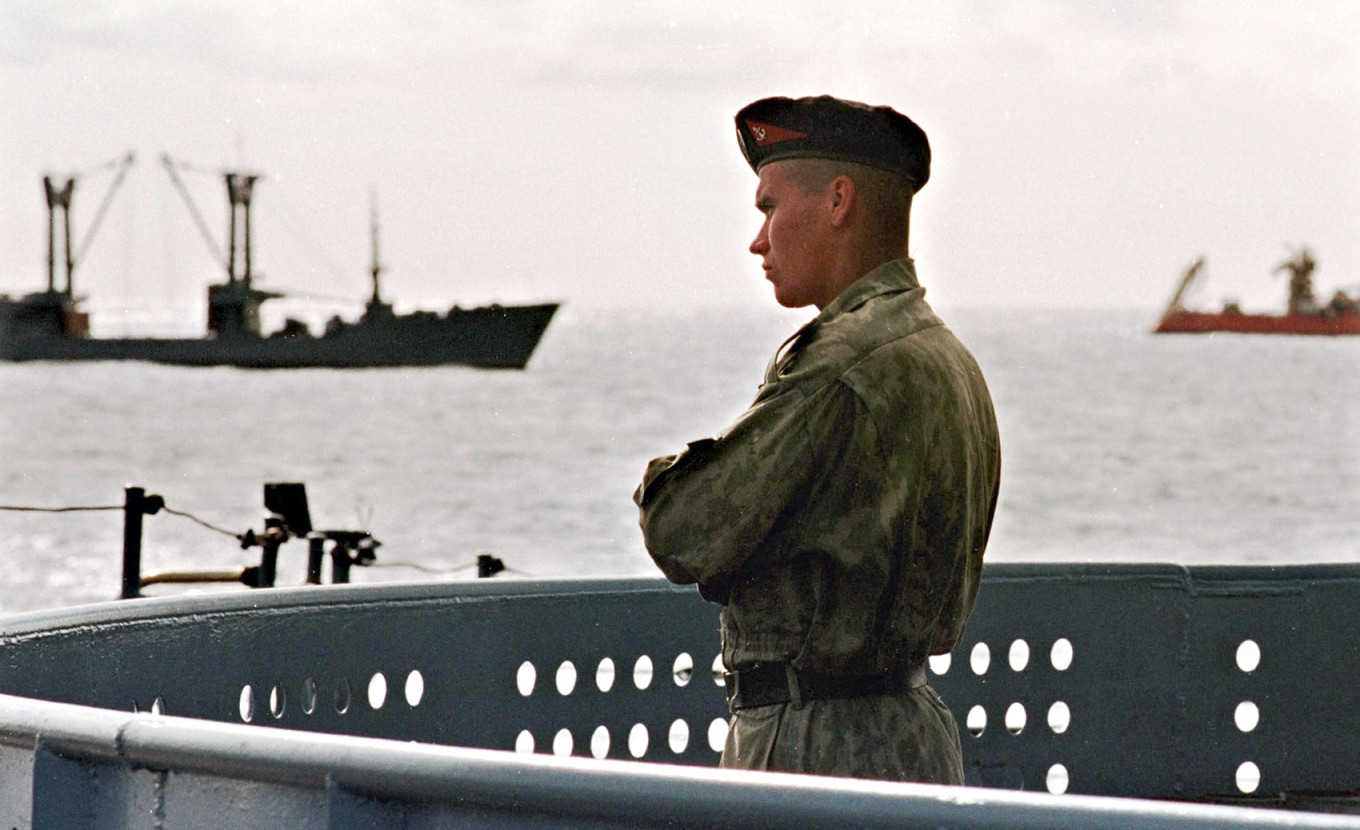
A Russian Navy sailor gazes out from aboard the Russian flagship Pyotr Veliky on Aug. 21, 2000, in the Barents Sea during a rescue mission. To the left, the Norwegian vessel Normand Pioneer assists the Russian Navy.
Stringer / POOL / AFP
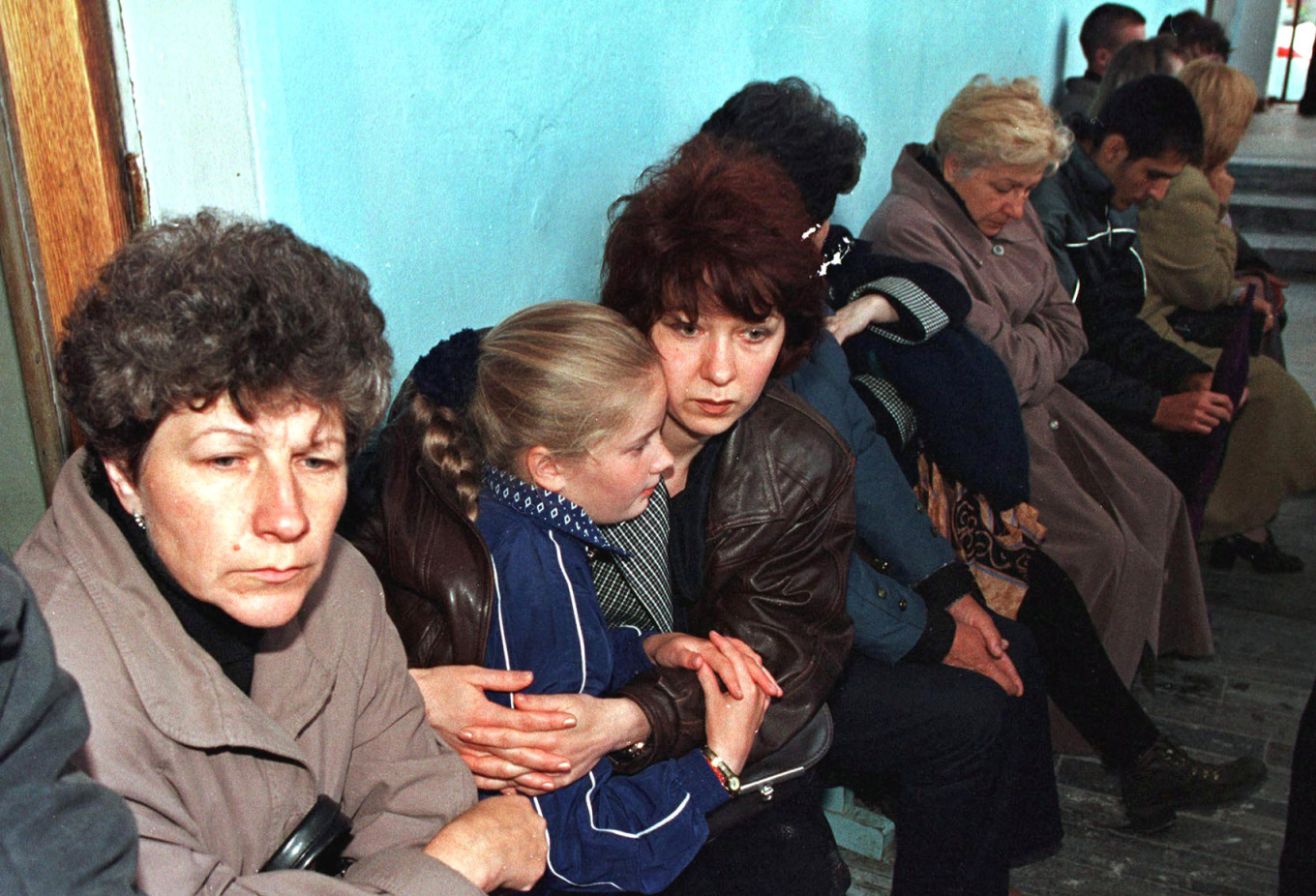
Family members of the crew from the sunken submarine await their meeting with Putin in Vidyayevo in the Murmansk region, on Aug. 22, 2000.
POOL / AFP

Putin with Irina Lyachina, the widow of Kursk commander Gennady Lyachin, and their daughter on Aug. 21, 2000.
kremlin.ru
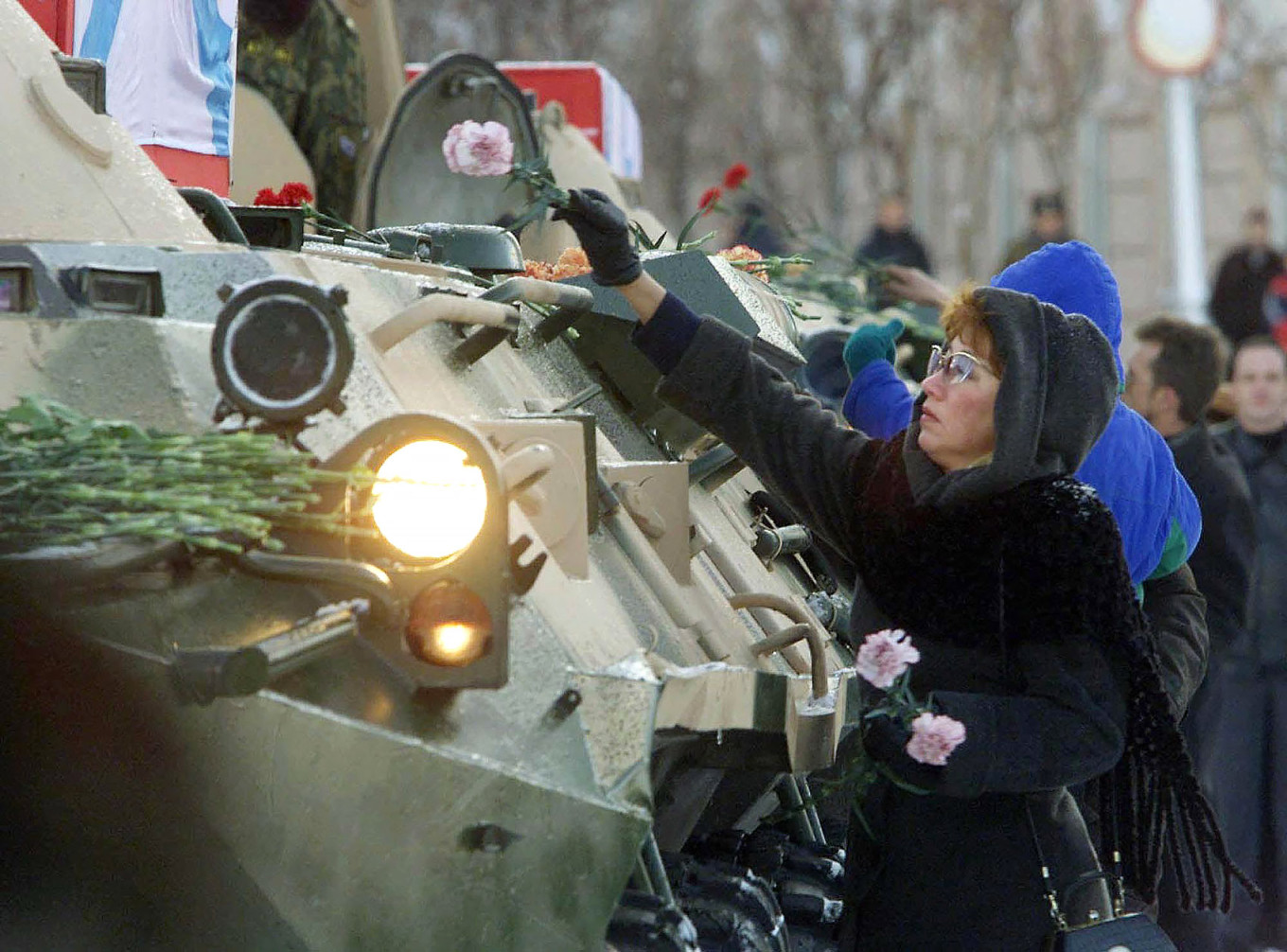
An unidentified woman places flowers on a casket holding the remains of a Kursk submariner during a memorial ceremony at the ship's home port of Severomorsk on Oct. 29, 2000.
Ivan Sekretarev / POOL / AFP
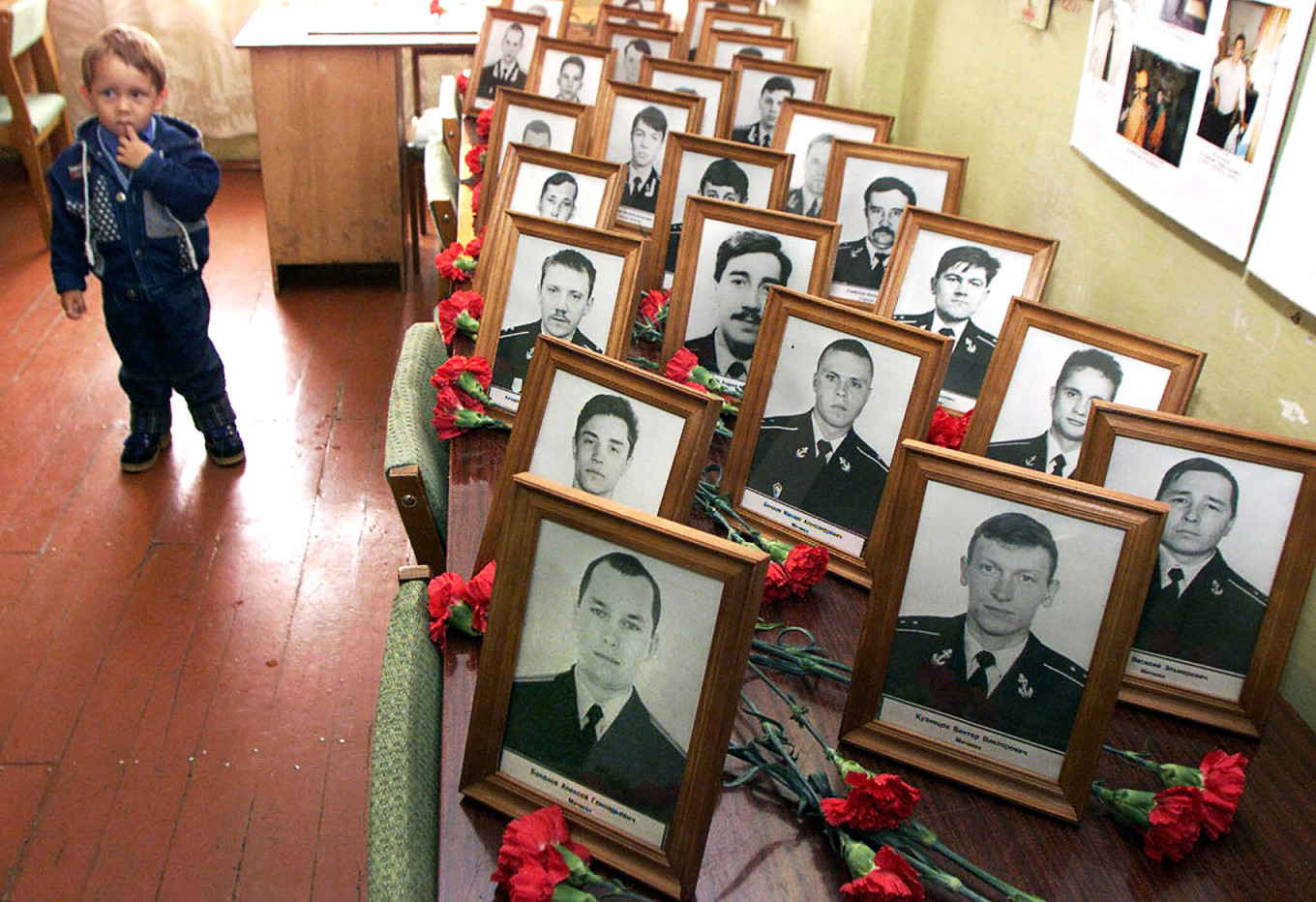
A Russian boy stands beside portraits of the Kursk submarine victims in their barracks during a memorial ceremony in the Arctic port of Vidyayevo on Aug. 12, 2001.
Sergei Karpukhin / REUTER POOL / AFP
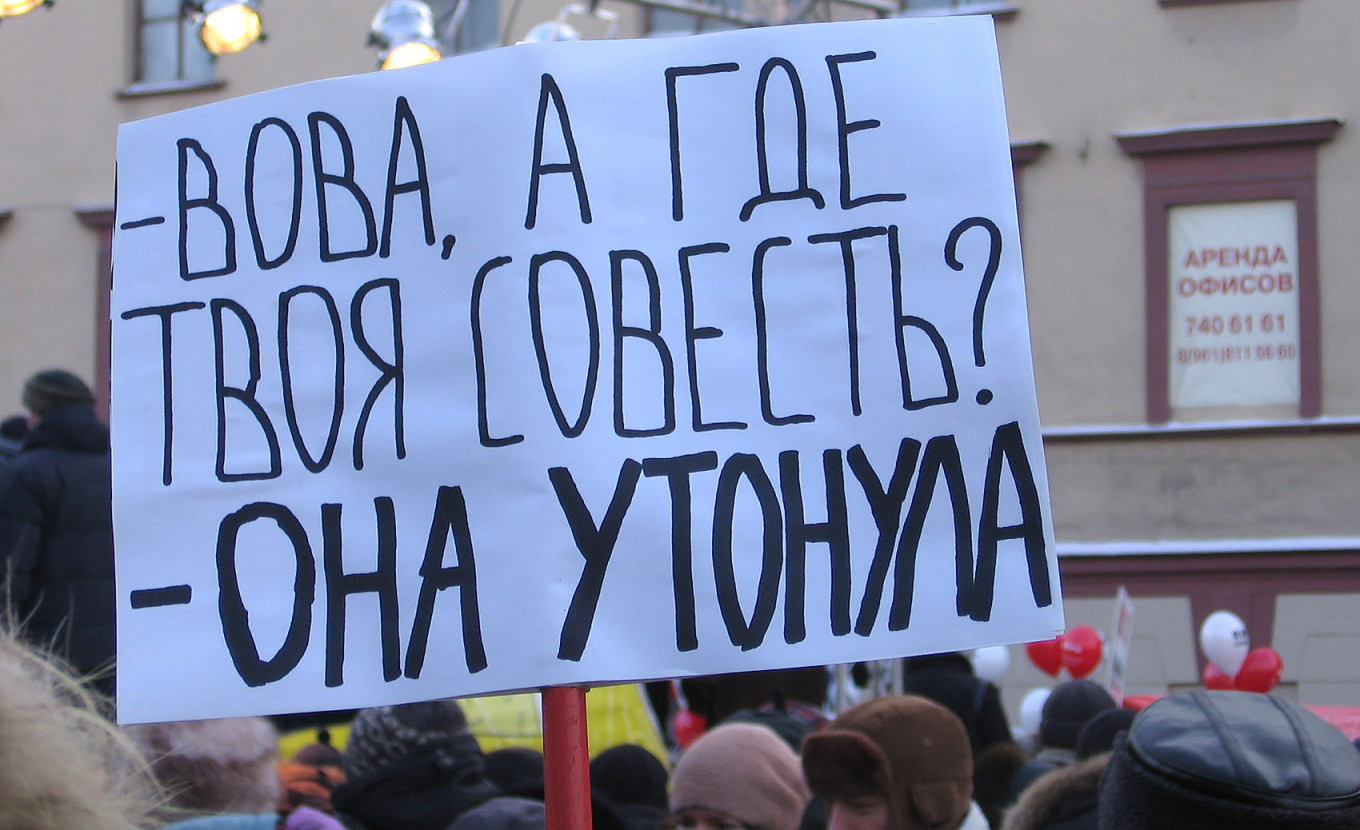
An opposition march in St. Petersburg, Russia, on Feb. 4, 2012. A poster reads, "Vova, where is your conscience? - It has drowned."
Anna Plotnikova / VoA
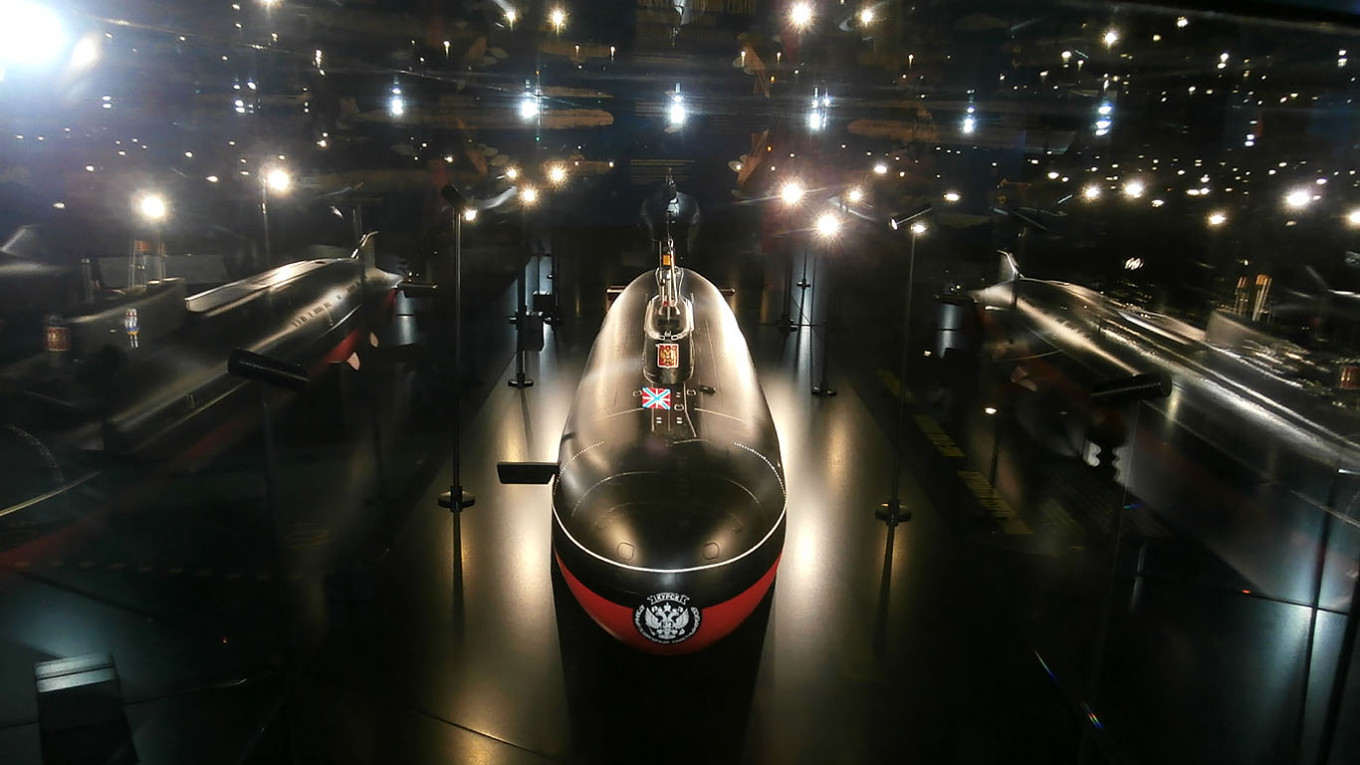
A model of the K-141 Kursk on display at the Estonian Maritime Museum in the seaplane harbor in Tallinn.
Pjotr Mahhonin (CC BY-SA 4.0)
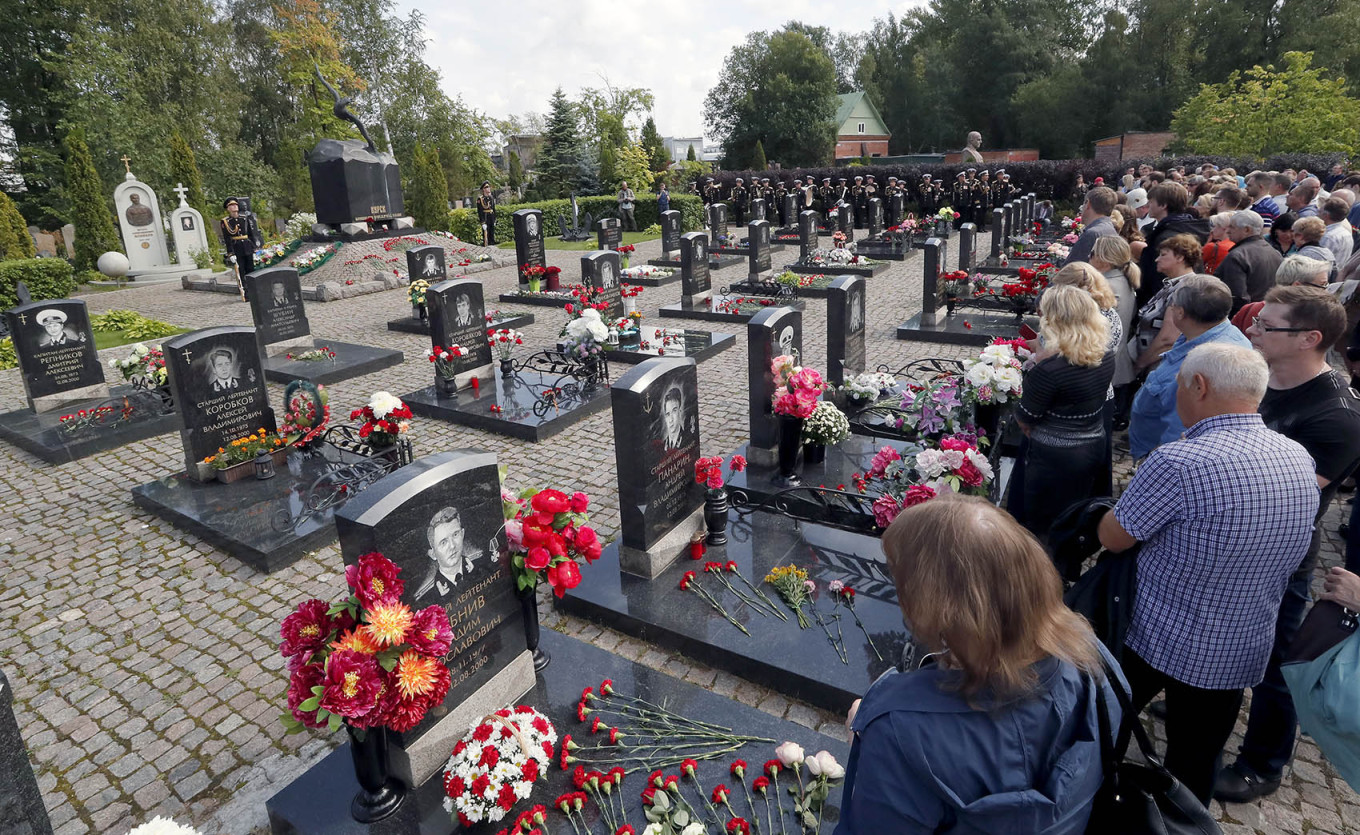
Family members of the deceased submarine crew attend a memorial service at the Serafimovskoye Cemetery.
Anatoly Maltsev / EPA / TASS
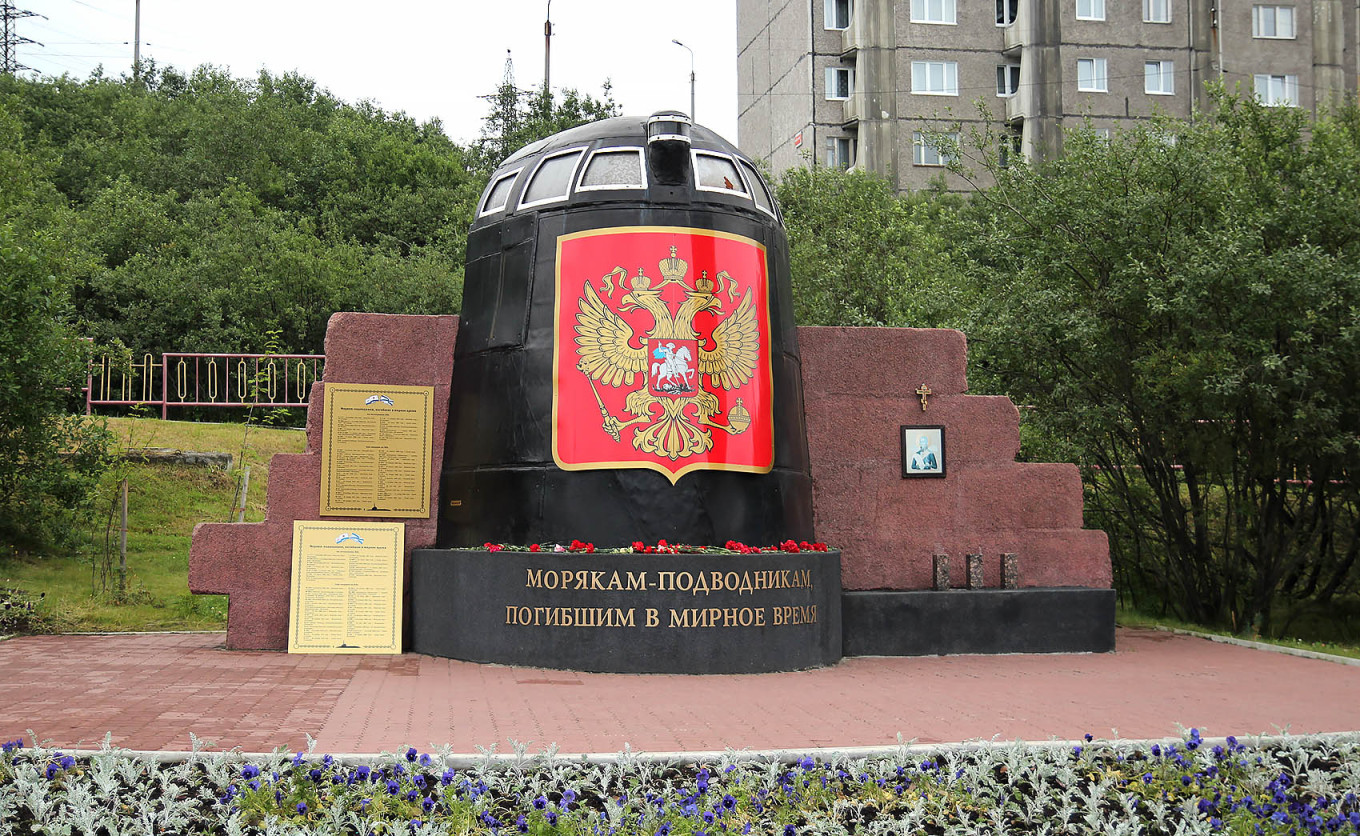
The salvaged deckhouse of the Kursk has been incorporated into the Sailors Who Died in Peacetime memorial complex in Murmansk. The deckhouse was installed near the Savior on the Waters Church on July 26, 2009, and opened on Navy Day on July 28, 2009.
Insider (CC BY-SA 3.0)



